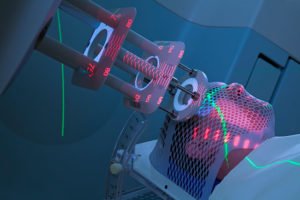By Stefan Oberndorfer, MD, Prof, FEAN
 Cancer is one of the most important conditions in human health, and due to longer life expectation and improved therapies, survival in cancer patients is also increasing. This has several implications in the management of cancer patients as the longer survival changes the “natural” course of many tumors.
Cancer is one of the most important conditions in human health, and due to longer life expectation and improved therapies, survival in cancer patients is also increasing. This has several implications in the management of cancer patients as the longer survival changes the “natural” course of many tumors.
The nervous system, consisting of the brain, spinal cord, the peripheral, and autonomic system is exposed to direct and indirect damage by cancer, which are not only metastatic, but also metabolic, endocrine, inflammatory, and paraneoplastic. In the past decades, besides hematotoxicity, neurotoxicity (for instance, chemotherapy-induced polyneuropathy) was one of the most frequent side effects of anticancer treatment. In recent years, the profile of side effects from cancer therapy is changing from the classical, often dose-related toxicity toward side effects predominantly based on immune mechanisms.
Side effects from these new therapies, including molecular and immunological mechanisms, induce neurological phenomena affecting the brain, spinal cord, and the peripheral nervous system. In clinical practice, the distinction between direct cancer effects, side effects of classical and “newer” therapies, or other cancer effects need to be thoroughly discriminated. This discrimination has a major impact on the therapeutic and diagnostic management of cancer patients.
Conversely to the classic concept of direct damage (e.g. surgery), or toxicity (and chemotherapy), targeted and immune therapies present with an entirely new spectrum of side effects. In clinical practice, where the patient may be affected with tumor progression, concomitant diseases, infections, and side effects of conventional therapies, these emerging therapies pose an additional factor and need to be classified as distinct neurological syndromes.
For the clinical neurologist and neuro-oncologist, it seems sometimes challenging to catch up with all the new anticancer treatments, even with a focus on neurological side effects. Each year, an amazing number of new drugs appear that have been evaluated for toxicity in early phase 1 and 2 trials, and during the registration process. However, their effect in the medium- and long-terms is uncertain, and clinicians are challenged by monitoring these patients.
Recent developments in medical oncology, for example, the therapeutic “revolution” in many cancer types induced by checkpoint inhibitors, show a completely new spectrum of neurological complications such as autoimmune encephalitis, Guillain-Barre syndrome, and myasthenic syndromes. A complete summary of “classical” and “newer” neurotoxicity of anticancer treatment can be found in the book “Side Effects of Anticancer Treatment, co-edited by this author, with many international contributors, focusing on therapy related effects, and providing pragmatic guidance for the differential diagnosis from neoplastic and other causes.
Adequate and immediate response to autoimmune phenomena caused by checkpoint inhibitors (dose reduction, immunosuppression) is crucial for oncologic and neurological outcome. At the same time, symptomatic therapies of neurological side effects have to be applied. Another example is neuropathic pain, which may be caused by direct or indirect effects of cancer and also as a side effect of therapy. Other examples for the need of symptomatic therapies are disorders of coordination, cognitive disorders, seizures, weakness, which need the expertise of neuro-oncology.
Due to the rapid progress in molecular pathology and genetics, the borders of tumor entities blur and the spectrum of anticancer treatment will become more colourful and personalized in the future. The conventional approach based on surgery, radiotherapy, and chemotherapy will be increasingly complemented by the concepts of targeted therapies and immune therapies, which will increasingly result in a new spectrum of side effects. •
Prof. Oberndorfer is head of the department of neurology at the University Clinic St. Pölten in Austria.
Reference
Grisold W, Soffietti R, Oberndorfer S, Guido Cavaletti (eds): Effects of cancer treatment on the nervous system. Cambridge Scholars Publishing, 2020–2021, Volumes 1 and 2
